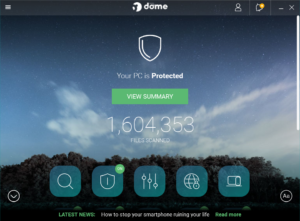
The integrated web search in the Windows Start menu is cool, and a lot more useful than you might think. But like just about every other part of Windows lately, it insists on keeping you in Microsoft’s playpen by forcing links to open in the Edge browser. That’s about to change, at least if you live in most of continental Europe. A recent change to the developer channel indicates that links from the Start search and widgets in Windows 11 will open in the operating system’s default browser, whatever that happens to be.
The change comes in an August announcement on the Windows Insider Preview notes, with a pointed addendum that it’s only for the European Economic Area. That’s all the countries in the European Union, plus Norway, Iceland, and Liechtenstein. “Windows system components use the default browser to open links,” says the post, a change that will presumably head to the general Windows 11 release within a few weeks or a couple of months. It should apply to pretty much any part of the operating system that opens a link via a browser, from the main Start menu search to help links deep in submenus.
This will finally fix an issue (Microsoft would call it a “feature”) that users have been complaining about for years, ever since Microsoft inexorably tied its proprietary services to the Edge browser and, by extension, the Bing search engine. PCWorld’s Mark Hachman was documenting Microsoft’s iron grip over Edge integration way back in 2016. There have been various user work-arounds for this behavior for those who wanted to exclusively use third-party browsers like Chrome or Firefox. But Microsoft has repeatedly adjusted Windows to block these tools.
Why make this change only in Europe? The update text doesn’t say. But if you’ve followed technology news at all, you know that Europe’s economic laws covering competition (or lack thereof) are far more strict than most parts of the world, with more or less every major American tech company facing either intense scrutiny or explicit enforcement action from the European Commission. As The Verge notes, this change is likely being made to comply with the Digital Markets Act which will come into effect next year.
Sadly, but not surprisingly, Microsoft seems intent to make these changes only where it’s forced to do so. The rest of us Windows users will still be seeing Edge tabs from time to time, whether we want to or not.
- SEO Powered Content & PR Distribution. Get Amplified Today.
- PlatoData.Network Vertical Generative Ai. Empower Yourself. Access Here.
- PlatoAiStream. Web3 Intelligence. Knowledge Amplified. Access Here.
- PlatoESG. Automotive / EVs, Carbon, CleanTech, Energy, Environment, Solar, Waste Management. Access Here.
- PlatoHealth. Biotech and Clinical Trials Intelligence. Access Here.
- ChartPrime. Elevate your Trading Game with ChartPrime. Access Here.
- BlockOffsets. Modernizing Environmental Offset Ownership. Access Here.
- Source: https://www.pcworld.com/article/2057385/windows-will-stop-forcing-edge-on-users-but-only-in-europe.html
- 11
- a
- About
- act
- Action
- All
- American
- an
- and
- Announcement
- any
- apply
- ARE
- AREA
- At
- AUGUST
- back
- BE
- been
- behavior
- being
- Bing
- block
- browser
- but
- by
- call
- change
- changes
- channel
- Chrome
- come
- comes
- commission
- company
- competition
- comply
- components
- continental
- cool
- countries
- Couple
- covering
- deep
- Developer
- digital
- do
- Economic
- Edge
- Effect
- either
- enforcement
- engine
- Europe
- Europe’s
- European
- european commission
- european union
- EVER
- Every
- exclusively
- extension
- facing
- far
- few
- Finally
- Firefox
- Fix
- followed
- For
- forced
- from
- General
- happens
- has
- Have
- head
- help
- HTML
- HTTPS
- iceland
- if
- in
- Insider
- integrated
- integration
- intent
- into
- Is
- issue
- IT
- ITS
- jpg
- just
- keeping
- know
- lack
- Laws
- least
- less
- liechtenstein
- like
- likely
- LINK
- links
- Live
- lot
- made
- main
- major
- make
- mark
- Markets
- Microsoft
- might
- months
- more
- most
- much
- news
- Next
- Norway
- not
- of
- on
- only
- open
- opens
- operating
- operating system
- or
- Other
- over
- part
- parts
- plato
- plato data intelligence
- platodata
- platogaming
- Plus
- post
- pretty
- Preview
- proprietary
- recent
- release
- REST
- say
- says
- scrutiny
- Search
- search engine
- seeing
- seems
- Services
- should
- since
- So
- start
- still
- stop
- strict
- system
- tech
- tech company
- Technology
- Technology News
- text
- than
- that
- The
- the world
- there
- These
- this
- those
- tied
- time
- to
- union
- Update
- us
- use
- User
- users
- various
- via
- want
- wanted
- was
- we
- web
- weeks
- whatever
- where
- whether
- WHO
- will
- windows
- Windows 11
- Windows users
- with
- within
- world
- would
- year
- years
- you
- zephyrnet











